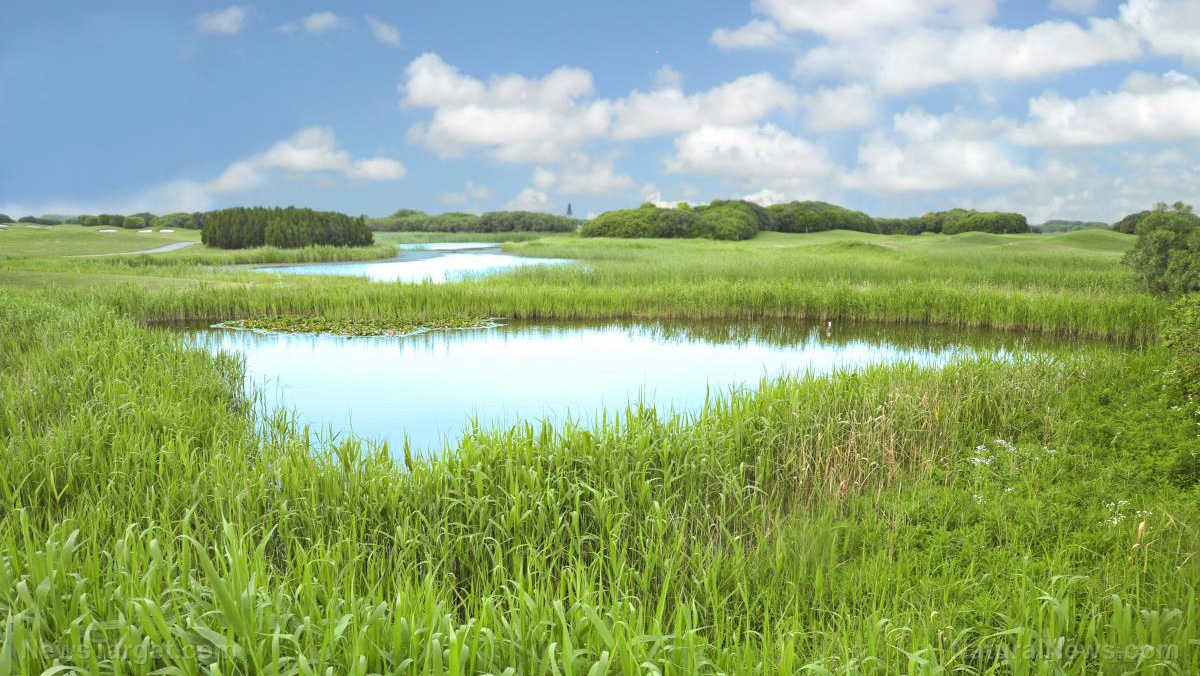Water conservation FAIL: Artificial turf grass actually uses MORE water than real grass, according to study
04/12/2018 / By David Williams

Turf grass has long been considered by many as a more Earth-friendly alternative to real grass, mainly because of the perceived savings that it brings as far as water is concerned. Indeed, it is marketed and demonstrated to the public as a more water-conserving alternative to actual grass, and most people never question this narrative. However, a new study now calls this into question.
The study shows that instead of performing better than real grass, artificial turf disappointed by performing worse and failing to save water. If there was ever a doubt about turf grass’ ability to conserve water when compared with real grass, this study just confirmed it.
According to Bernd Leinauer, a professor from the New Mexico State University (NMSU), he began the research by rather pointedly asking the question: Is artificial turf actually saving water compared to real grass? He approached his mentor Ahmed Kanaan as well as fellow NMSU professor Igor Sevostianov to try and find the answer. He soon learned that all it took was a small equation to calculate the answer to his question.
Right from the start, Leinauer knew that he had his work cut out for him. “I’m usually a little bit skeptical about (theoretical calculations), so we agreed that Ahmed would first do the equation so we can see what the model tells us and how much water would be needed to keep the artificial turf cool,” he explained. “Then we will actually go out and measure and see if the model holds true and if the two numbers line up.”
Once they wrapped up the theoretical parts of their experiments, they went ahead and set up a test area on an actual field of turf grass. It is said that Kanaan set it up over the summer on artificial turf that was located on the infield of NMSU’s baseball field. It ended up having a parameter of 40 by 40 feet on the field, and they installed a temporary irrigation system in it. (Related: 6 Ways to conserve water and money when watering your garden.)

According to Kanaan, he then used the field to confirm whether or not their calculations were correct. “After I set everything up, I decided to run the irrigation system for 20 minutes to see how long it would take to heat back up. I took two readings each day, one in the morning and one at noon, just to see the distribution of temperature,” he recounted. “The model I used to calculated the amount of water required to cool the artificial turf correctly with an acceptable margin of error but there was no information how long it takes for the field to heat up again.”
There have been reports of artificial turf’s ability to reach temperatures as high as 180 degrees Fahrenheit. This means that athletes that use turf fields are subject to these high temperatures, and it’s important to understand how much of an effect any cooling mechanisms can have on it. Well, after performing their experiments, the team led by Leinauer found that it wasn’t very good at maximizing the use of water for cooling after all.
“At the end of the day what was still stunning to me was we irrigated for 20 minutes and in these 20 minutes we cooled the artificial turf down to more or less body temperature so that it would be comfortable for any athlete,” said Kanaan, “but within an hour after irrigation we were up at the high temperature again.” In short, even beginning to use the cooling system at the start of a game wouldn’t be enough before things start heating up again. Even more shocking, Kanaan notes, “And in these 20 minutes, we put out enough water that would last for a Bermudagrass field for an entire day.”
So far, the researchers here have found seemingly conclusive evidence that artificial turf is no better than real grass in terms of being cooled with active cooling systems, particularly those that use water. However, they — or perhaps other experts — will likely perform further tests to gather more evidence.
Learn more about other studies focused on water in WaterFilters.news.
Sources include:
Submit a correction >>
Tagged Under:
This article may contain statements that reflect the opinion of the author





















